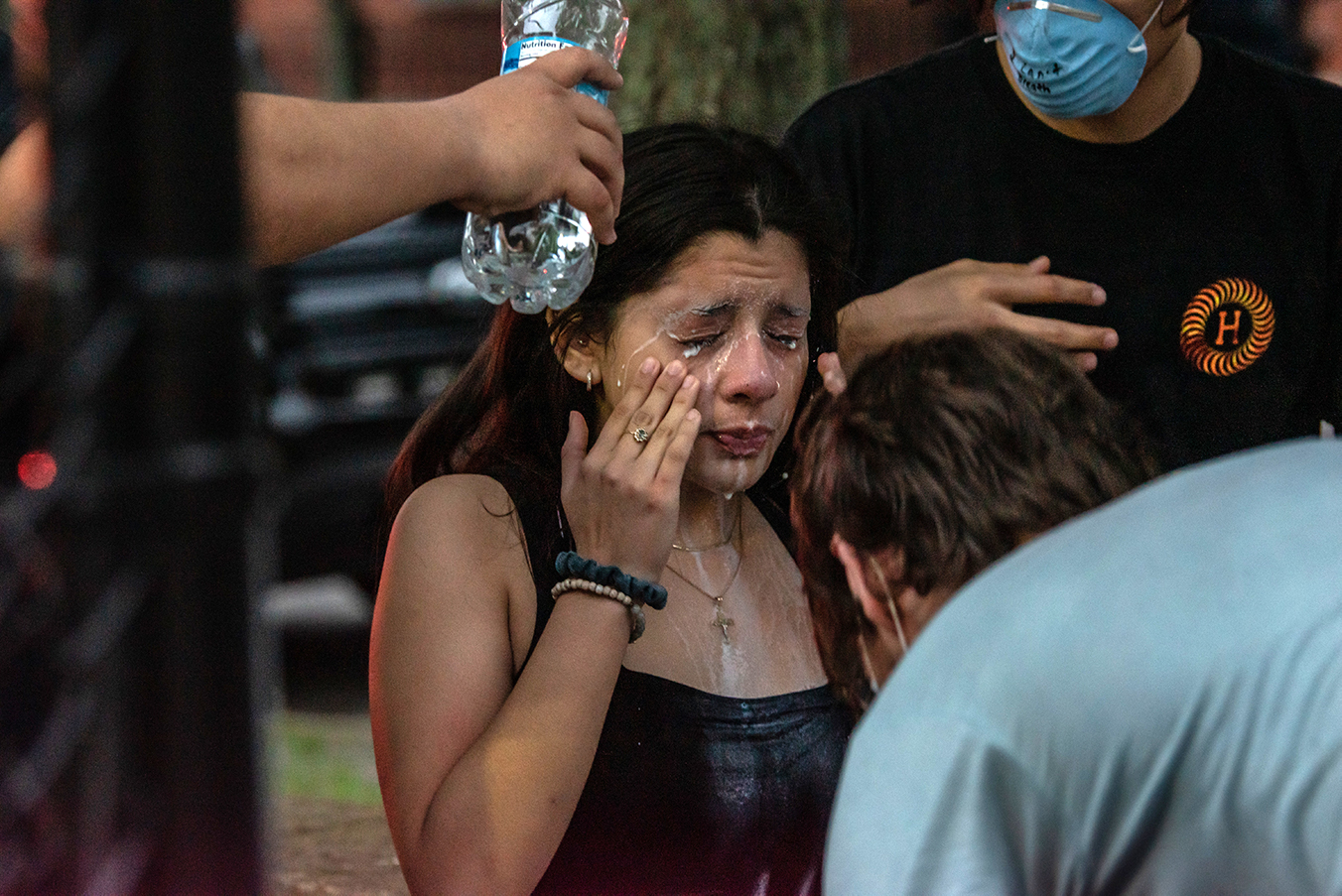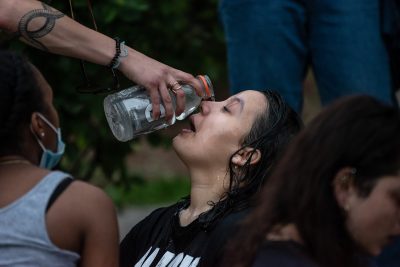
What was supposed to be a peaceful march against police brutality in Boston Friday evening escalated when police officers used pepper spray on protesters.
The standoff began when one marcher stepped onto a platform reserved for law enforcement, who were standing watch in front of the District 4 police station as the congregation proceeded through Harrison Avenue.
Soon, shoving ensued. Then came the pepper spray.
One marcher who received a spray to her face, 18-year-old Rania Belqaie, said an officer “got” her abruptly.
“I couldn’t open up my eyes no more,” Belqaie said, as screams broke through in the background. “My eyes were burning.”
She said others were quick to come to her aid, though she couldn’t open her eyes to see who was offering the help.
“Even though my face is burning right now, it’s all worth it,” Belqaie said. “We need to fight for justice and peace.”
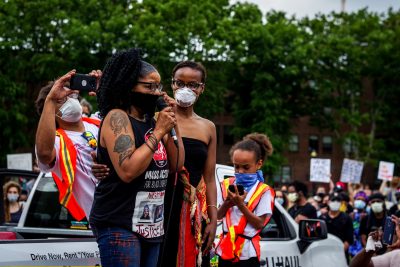
Demonstrators had filled Peters Park in the South End that afternoon to rally against a recent string of Black fatalities at the hands of municipal law enforcement that, most recently, culminated in the slaying of George Floyd this week in Minneapolis.
A multiracial crowd donning face coverings and raising sloganed posters assembled to hear from long-time advocates and mothers of local police brutality victims before taking to the streets.
One speaker, Hope Coleman, witnessed her son’s death when he was fatally shot by a Boston police officer in 2016. Nearly four years later, the trauma stays with her.
“I can’t enjoy the holidays,” Coleman said in her speech, the shaking in her voice amplified by the microphone. “But the ones that killed my son, they can go on holiday trips, wake up the next morning, say good morning, goodnight, Mom, Dad.”
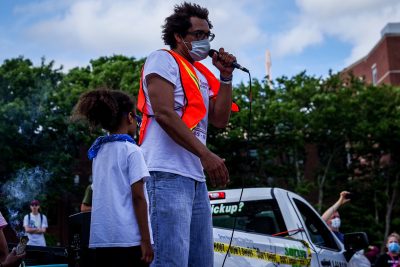
Brock Satter of Mass Action Against Police Brutality was among the lead organizers of Friday’s demonstration. In his address to the audience, he said the third-degree murder charge laid upon the officer who killed Floyd is a success, but that more work must be done.
“That’s not enough,” Satter said. “That’s not enough for the family of [George] Floyd. It’s not enough for the community of the Twin Cities. It shouldn’t be enough for us, either.”
What activists must demand, Satter said, is that each of the four officers involved in Floyd’s death be prosecuted to the full extent of the law.
“The reason why they keep killing people is they get away with it,” Satter said. “It’s not that difficult to understand. And that’s why we have to organize to demand that the cops go to jail when they commit the crimes.”
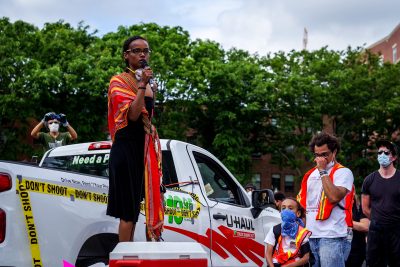
Sirad Zahra, another lead organizer, has advocated against police brutality for five years. She told the crowd the effort has affected “every part” of her life.
“I didn’t get a wink of sleep last night,” Zahra said. “Not one wink.”
Thus far in 2020, Zahra said, a total of 400 police-induced deaths have been reported.
“We’re taking preventative measures right now,” Zahra said as protesters joined her in a chant: “Not one more. Not one more. Not one more.”
Among the demands MAAPB is making, according to Zahra, is the reopening of all unresolved past police brutality cases as well as the prosecution and punishment of all who are guilty.
As they prepared to march, the organizers had emphasized to those gathered that they should remain peaceful throughout the planned route from Washington Street to Dudley Station.
“We’re going to have a safe march,” Zahra said at the park, before the demonstrators set out.
Lauryn Allen contributed to the reporting of this article.























































































































